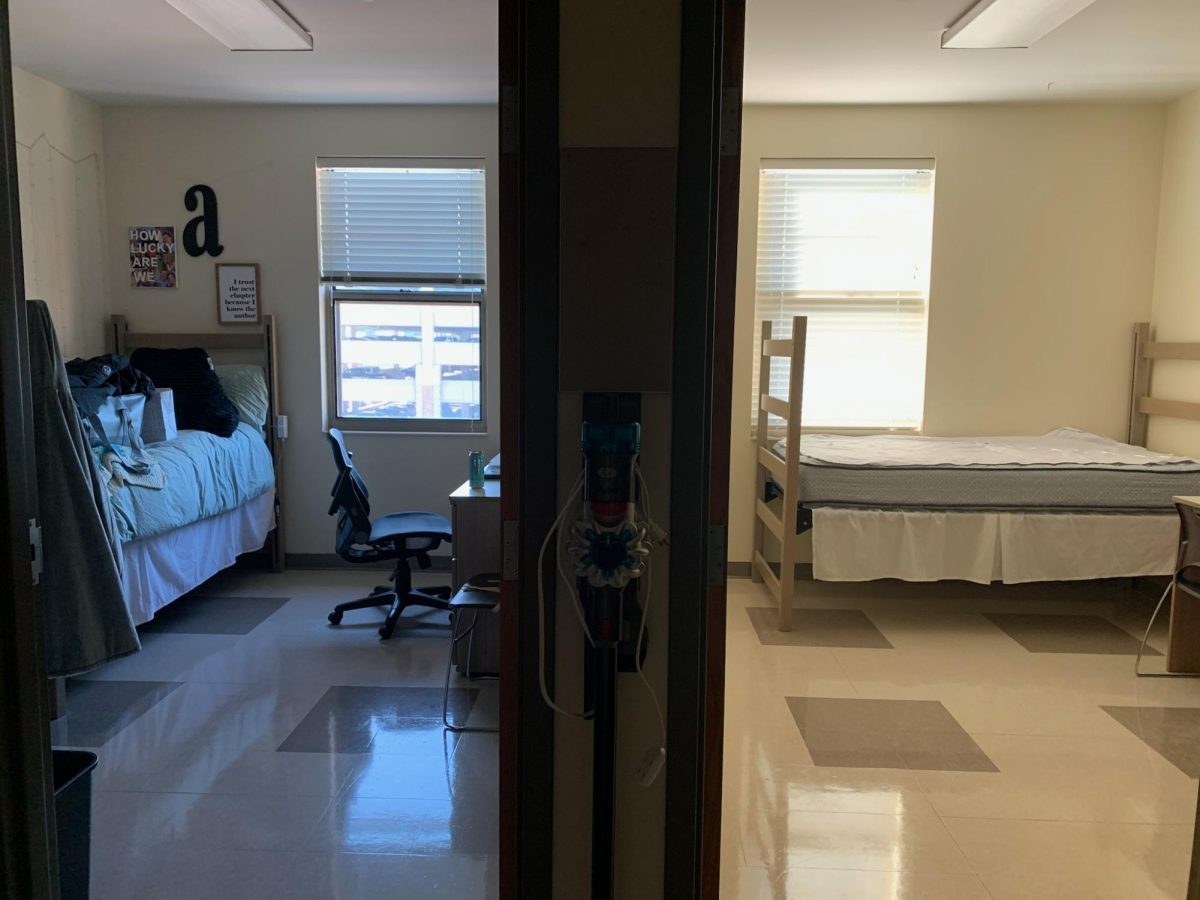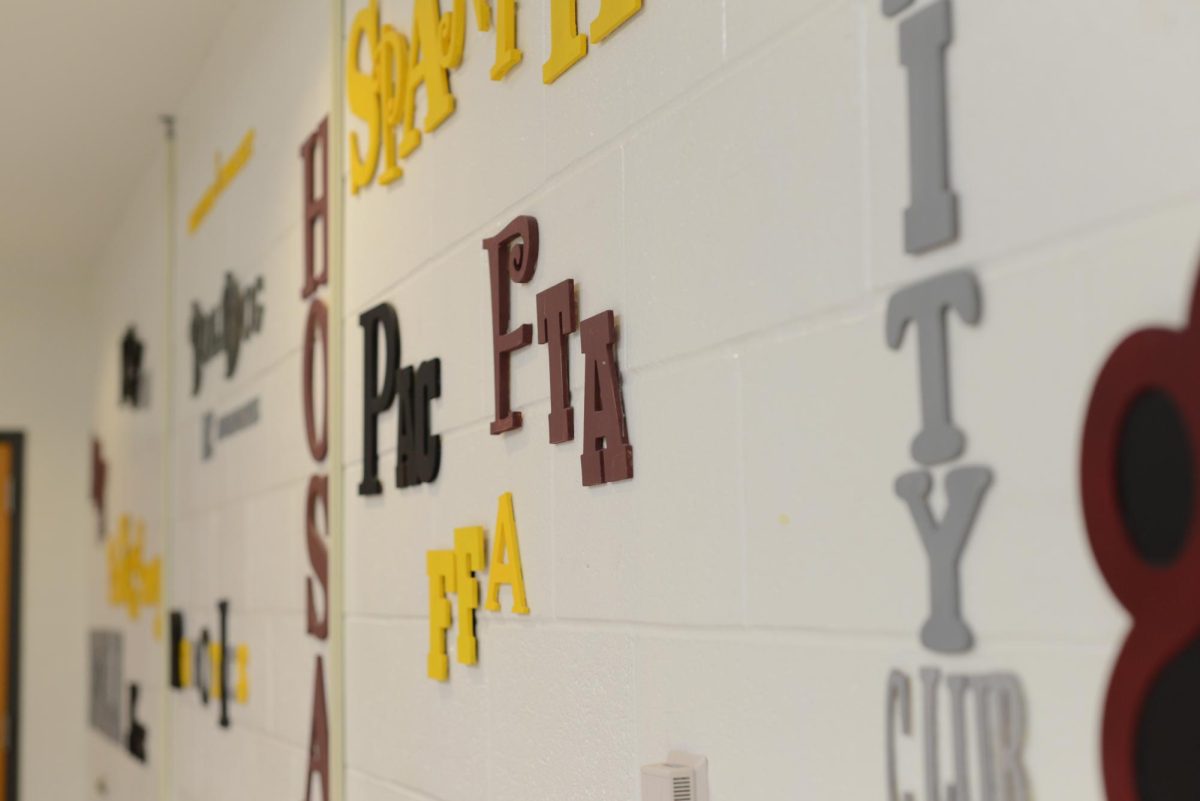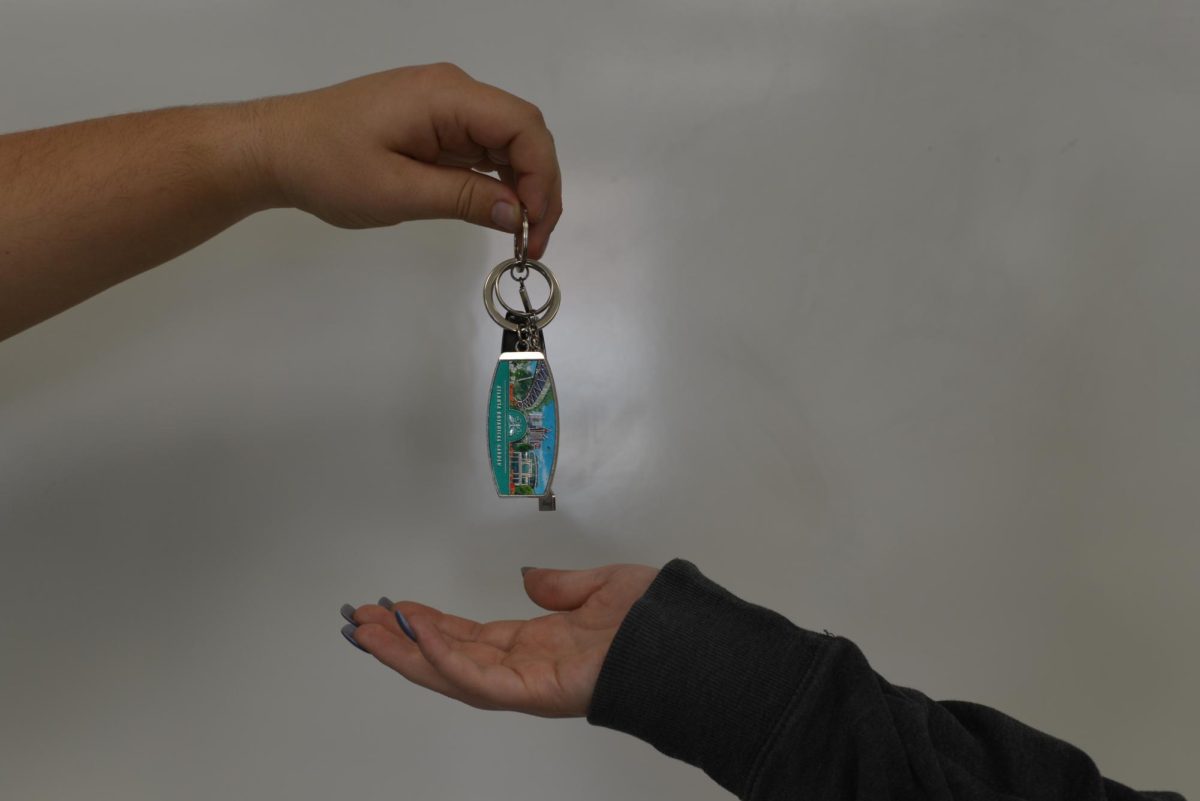Eccentric in-laws can be difficult to handle, and even finding the right house to buy can be complicated. But perhaps the hardest struggle any couple can face is building a family.
But when the struggle became disheartening for German teacher Tammy Lueck and her husband, rather than accept defeat, they took a new course of action.
“When Aaron and I got married in 2008, we knew we wanted a family and when it became evident that it wasn’t in the cards to have a biological child, our drive and desire to become parents was stronger than biology. So, we decided to pursue a domestic adoption. We started the adoption process June of 2010 and were matched with a birth mother in July of 2011,” Lueck said.
While the wait seemed extensive, many steps and procedures must take place before being matched with a birthmother willing to place her child for adoption.
“The first thing you have to do with any adoption is [to find] a reputable agency. With our specific agency, [we had] to go to a workshop and then they decide whether or not they want to work with us,” Lueck said. “Then they gave me a three-ring binder of paperwork that had to be filled out. When the paperwork is filled out, we had a home study. A social worker comes to our house and interviews us as a couple, interviews us separately, and also does a home inspection to make sure our home is suitable for a child. Once the home study is approved, then you have to apply to be matched with somebody. We applied, and then we were officially on the list to be matched with somebody.”
Lueck and her husband were kept busy by the agency right until the time of the match.
“After we [were] put on the list, we had to go to a bunch of classes. We had to go to infancy PR, child care, and newborn child care. We had to read three different books and watch four different videos,” Lueck said. “We also had to put together a document called a profile. It’s very awkward feeling because you’re basically advertising yourself. You’re saying, ‘Hey, we’re good people, so let us raise your baby.’ [After] you put together this profile, you give it to your agency.”
In the adoption process, you have the ability to choose what ‘type’ of baby you’d prefer.
“You have to make the decisions upfront: Do you want a baby of one race or the other? Are you okay with a biracial baby? Are you okay with a baby of a certain ethnicity or religion? You have to [decide] up front,” Lueck said.
After the initial paperwork is completed, the wait continues for a birthmother.
“What happened in our specific situation is this woman has an unexpected pregnancy. Her significant other, the man who was involved in getting her in this situation, asked her to terminate the pregnancy. When she decided not to terminate the pregnancy, he split. So, here she is with all the love in the world but without the financial or family support to make this baby’s home life a good one,” Lueck said. “So, she goes to the adoption agency and says, ‘I’m thinking of adoption for my baby.’ They send her off with [a few] profiles, she reads ours and decides she wants to meet us. We worked it out where when Mr. Lueck was home for his R&R this summer and had about a five hour meeting with her.”
When Lueck met the birthmother, it wasn’t anything like a lunch date, but more like an interview.
“We talked about how we would raise her son, what our beliefs were – everything under the sun. I mean, she went over us with a microscope. We had to be comfortable with her too because this is an open adoption,” Lueck said.
According to the Wikipedia.org definition, an open adoption is an adoption in which the biological mother or parents and adoptive family know the identity of each other. In open adoption, the parental rights of biological parents are terminated, as they are in “closed adoptions” and the adoptive parents become the legal parents, yet the parties elect to remain in contact.
“What’s interesting is the adoption agency told us to be patient – it would take the right combination of personalities to clique. This woman’s dad had two parents that were immigrants from Germany. He was raised in a home where only German was spoken. He tried to teach his daughter German, but she refused his efforts. So she connected with that right away. I’ve made a promise her that [the child] will learn to speak German,” Lueck said.
Not only did Frau Lueck make a connection, but Herr Lueck did as well. The birthmother thought no one could make a better father than an American soldier.
“Something that was really important – to her too – was to make sure her son had a really strong male role model. Exactly what she said to us, she could not imagine a better role model for her son than a man who was willing to sacrifice his life for his country,” Lueck said.
“It’s bizarre because she and Mr. Lueck like the same music. When we were meeting her, they were throwing Family Guy lines back a forth. She also liked that Mr. Lueck is in a band. [The baby’s] birthfather, or as I like to say, ‘sperm-donor’ is in a band and plays bass guitar. So hopefully, [the baby] will have some rhythm, or if not, we’ll give him drumsticks and he can fake it,” Lueck said.
The birthmother felt that the Lueck family was ideal to raise and parent her son.
“So, in July, we had an official match. Since then we’ve just been waiting. I’ve been communicating with her weekly. She’s been keeping me updated on the baby. I’ve been to two doctors’ appointments with her [and] I’ve been able to hear the baby’s heartbeat and see him in the ultrasound – which is an awesome situation. We’re naming him Kooper,” Lueck said.
The Lueck family and the birthmother are in an agreement of keeping the adoption open.
“[The birthmother] wants to keep what’s called a semi-open adoption. We’ll keep in touch with her, but she doesn’t necessarily want to see the baby in person after he’s born. But, we’ll send her letters and pictures. Kooper will always know he had a first mother. When Mother’s Day comes around, he’ll send her a card and those kinds of things. That’s what an open adoption is about,” Lueck said.
Even once Kooper was born, the paperwork still wasn’t done.
“Four to five days after [Kooper was] born, we [had to] go to court for [the birthmother]
to terminate her parental rights. After she signs the paper work, the court grants me custody. Then we have to go through three more home visits by a social worker, then back to court and it becomes final,” Lueck said. “With our situation it’s a little different since the birth father split and hasn’t responded to any of our attempts to contact him, the court will have to terminate his rights without his permission on abandonment.”
Just like tradition family planning, there are financial considerations.
“It is important for people to understand the financial commitment of adoption. When all is said and done, this adoption will be close to $20,000. This includes application fees, fees to domestic adoption program, and pay for home studies – which are updated every 12 months. I have to pay for background checks and fingerprints, match fees, another fee after the birth. Also, lawyer fees, and hers too. It’s all part of the equation. We also help the birthmother in ways that are related to Kooper: Gas money to money to go to the doctor, co-pays for medicine she’s on. From our perspective, that’s the beginning of us parenting Kooper,” Lueck said.
Despite the mental and financial stress, there was a fear of the adoption being discontinued – whether it was the mother deciding to keep her child or the adoptee’s walking out. Luckily, after Kooper was born on Friday, October 7th, any worry that the adoption wouldn’t go through was diminished. The court proceedings and all paperwork was finalized, and Kooper went home to join his new family.
Regardless of the atypical conditions which led to the relationship between the Luecks and the birthmother, Lueck holds a particularly high admiration of her.
“I have the upmost respect for this woman. I’ve not been what she’s been through, but it’s really much of a grief process when it became real we weren’t going to be able to have our own biological child. So, she and I have the same emotions: I’m grieving the loss that will never be, and she’s going to have the opportunity that she has control over the situation to where she can choose the family for her son,” Lueck said. “There have been five adoptions in my family, so I have seen the blessing from the very beginning and knew that it could be a very stressful, yet blessed experience. Love is what makes a parent, not biology.”








